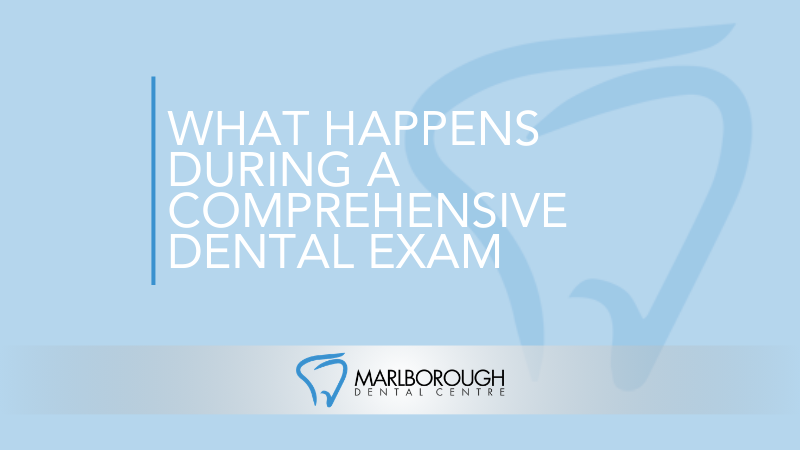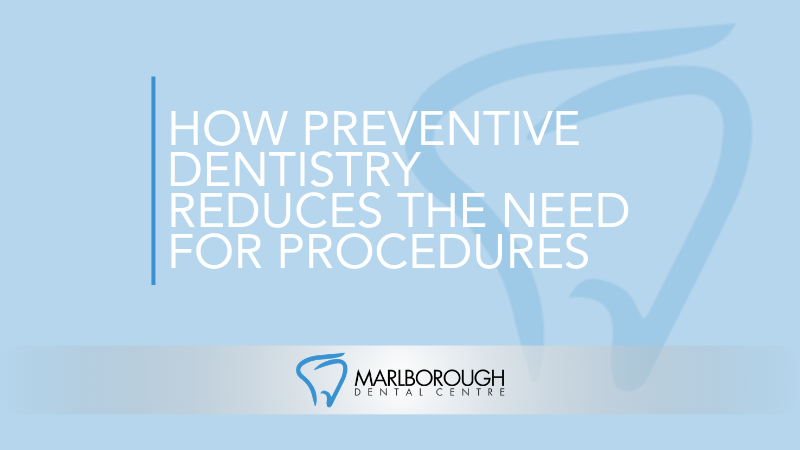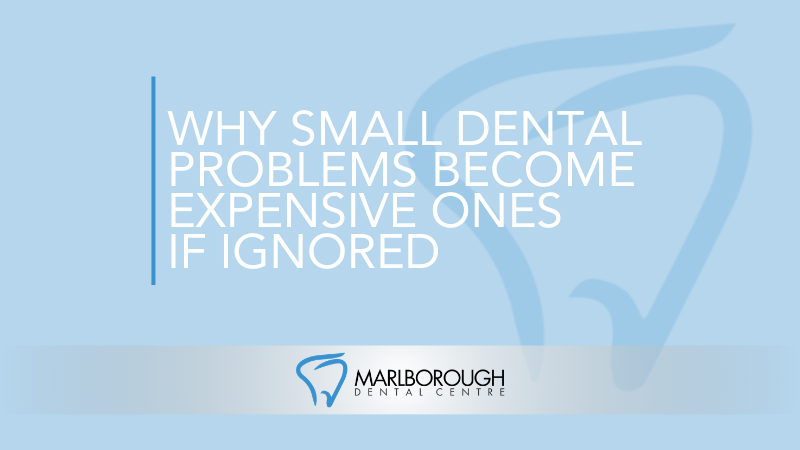Are you suffering from a toothache? Trying to decide if you need to visit your dentist or if you can tough it out at home? Here are some of the most common causes of a toothache so you can make an informed decision.
Teeth are some of the most delicate and sensitive parts of our bodies. After all, they are the only pieces of bone that come through the skin. This means that there is one less protective substance between our nerves and the natural elements. The lack of protection, combined with the high importance of them, and the impact that your oral health has on the rest of your body are the primary reasons we need to take extra special care of our teeth.
If a toothache has gotten painful enough that you are starting to worry, you may begin to think about contacting your dentist. Before you do so, you might be curious about the cause of your pain. Here are the ten most common causes of toothaches.
Get Rid Of Your Toothache at Marlborough Dental Centre
If a toothache is severely hampering your life and wellbeing, you don’t need to cope with it any longer. At our NE Calgary dental clinic, we offer affordable dental services, so you never need to compromise your health. We pride ourselves on providing dental services such as dental exams, teeth cleanings, pediatric dentistry, and more for all Calgarians.
Looking for a dentist to take care of you or your family's dental needs? Contact us today to book your appointment at 403-248-2066.
What is a Tooth Ache?
We’ve all had them at some point, and we will all likely get them again in the future, but what causes toothaches? In layman's terms, a toothache is pain created when the nerve of the tooth, or area around the tooth, is disturbed. The real mystery is figuring out what exactly is bothering the nerve. Finding this out is what your dentist will do when you visit them for your tooth pain. Before this, you may be curious as to what could be causing it. If this is the case, you should keep reading to learn about the common causes.
The 10 Most Common Causes of a Toothache
Gum Disease: Also known as periodontitis, it is one of the most common causes of tooth and gum pain. If not treated, gum disease can persist resulting in worsening tooth pain and a higher risk of tooth loss.
Cavities: Simply put, a cavity is a hole in your tooth that has developed due to acids and bacteria in your mouth eating away at the tooth. Cavities can be incredibly painful and can be one of the first signs of poor oral health hygiene and a precursor for tooth decay.
Broken Tooth: If a tooth gets chipped, cracked, or damaged, even in a minor fashion, it can be quite debilitating. Even the smallest of cracks can expose the tooth’s nerve, irritating it, resulting in some of the worst pain possible. You might think that you will be able to see a chipped tooth if you get one, but even the smallest cracks that are difficult to spot can cause a serious toothache.
Damaged Fillings, Crowns, or Bridges: If the tooth that is aching is the same tooth that you have gotten work on in the past, the pain could be coming as a result of the work being damaged. Whether it be fillings, crowns, or bridges, if any of them are damaged, the sensitive part of the tooth they were protecting could be exposed.
Abscessed Tooth: When oral health issues are not adequately treated, an infection could begin. If an infection is growing, what could come next is a tooth abscess. A tooth abscess is a deep infection occurring in the root of the tooth. If this is happening to you, you will know to immediately visit your dentist due to the incredible pain it will likely cause you.
Misaligned Teeth: As we continue to age and grow, our teeth move and shift, putting pressure against one another. Over time, this pressure can slowly irritate sensitive nerves in your mouth. One of the most prominent ways this can be seen is by wisdom teeth surgery. As they erupt into the mouth, they put pressure on the other teeth, causing toothaches.
Sore Jaw Muscles: Yes, sometimes your toothache can actually be caused by sore muscles in your jaw. If you are someone who clenches their teeth when stressed or is a frequent nighttime tooth grinder, your jaw muscles may get sore, irritating some of the oral nerves.
Sinus Infections: While it may seem strange, a severe sinus infection can be causing your toothache. If your tooth pain comes at around the same time as a cold or sickness, it could be because the sinus floor is pressuring your teeth, distressing some of the nerves.
Tooth Enamel Breakdown: Tooth enamel is the tough outer coating of your teeth, which also happens to be the hardest tissue in your body. The problem is that when it starts to erode, our bodies do not recreate the substance, meaning it is permanent. Permanent loss of tooth enamel can expose the nerve endings, leading to a toothache.
Sensitive Teeth: We saved the most common reason why your teeth might be hurting for last. How prone you are to tooth sensitivity depends on a variety of factors, most notably being genetics. Some of us are blessed with insensitive teeth, while others can barely drink coffee without their sensitivity flaring up. Just because it is common doesn’t mean you should disregard it when it does crop up. If your sensitive teeth are negatively impacting your daily life, contact your NE Calgary dentist to discuss available treatment options.
Related Reading:
Causes of Teeth Whitening Sensitivity and How You Can Improve It
How to Decide If You Need to Visit Your Dentist for Your Toothache
Your Complete Guide to Dealing With An Abscessed Tooth
Contact Us To Get Your Tooth Ache Looked At By Our Calgary Dentists
At Marlborough Dental Centre, our top Calgary dentists will ensure that your best oral health interests are our priority. If you are suffering from tooth pain, you don’t need to put up with it any longer. We offer affordable dental solutions to all of our patients so you can be free of pain without crippling your bank account. To schedule an appointment at our NE Calgary dental clinic, contact us by calling 403-248-2066 or fill in our online contact form.
FAQ’s
Q. What is considered a dental emergency?
The term “dental emergency” can sometimes have a loose definition. The best way to decide if you have a dental emergency is to see if you have any of the following symptoms:
- Severe, constant pain
- Bleeding
- Lost, chipped, or broken tooth
- Swelling or pus inside the mouth
- Swollen jaw
- Numb teeth or jaw
Q. Should I go to the ER for tooth pain?
If your tooth pain is combined with other symptoms such as swelling, pus, a foul taste in your mouth, high fever, and a general feeling of sickness, visit the ER as you may have an oral infection that has spread throughout your body. If your pain is not combined with any of the symptoms above, visit your dentist to determine the best course of action.
Q. What can I do at home about my toothache?
There are many home remedies available to alleviate tooth pain. Some of them include:
- Pain medication (ibuprofen)
- Rinse your mouth with saltwater
- Ice your mouth
- Brush your teeth and use mouthwash
- Elevate your head



